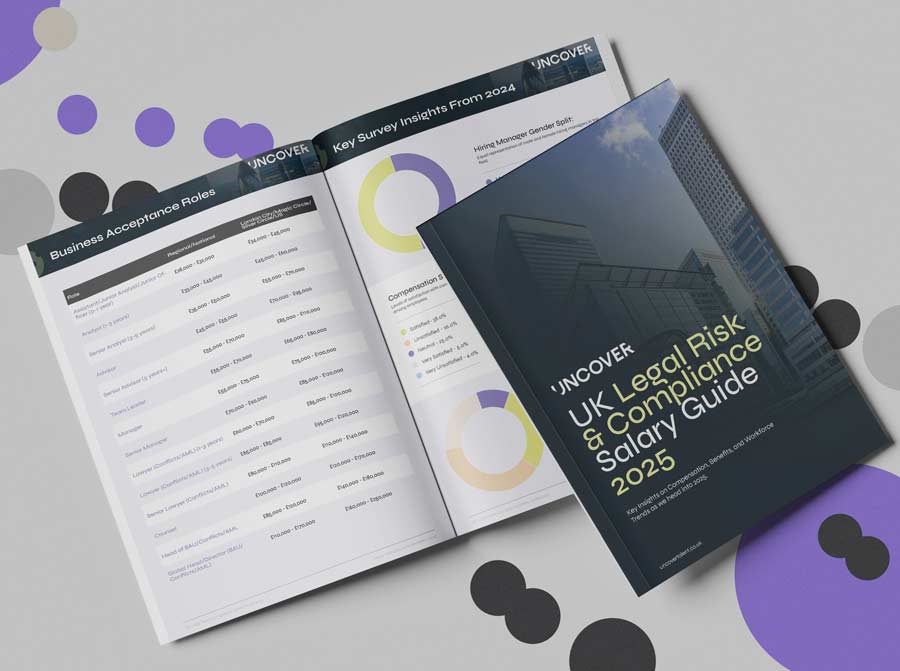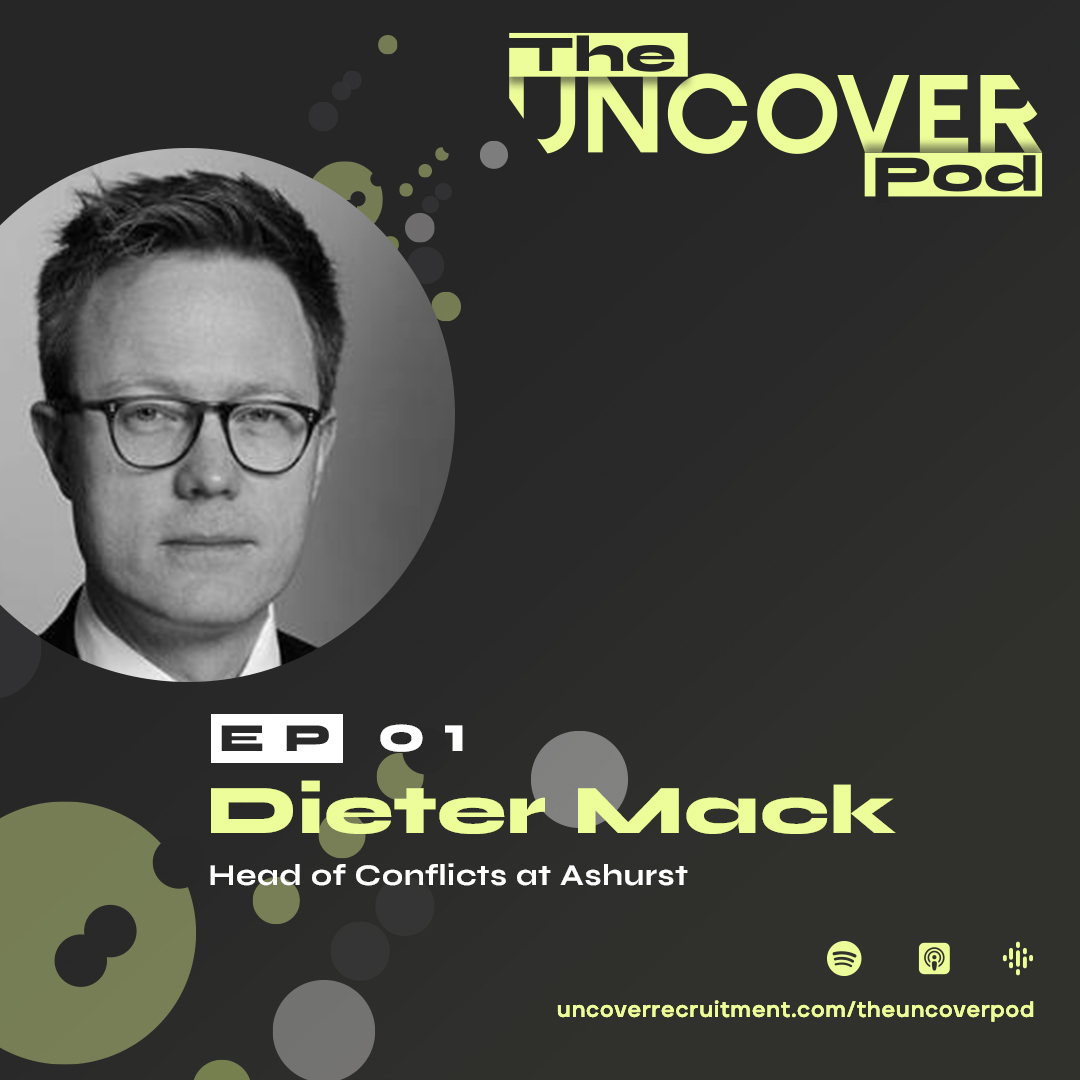The Legal Risk & Compliance sector contains several pathways for professionals to progress in their careers. On The UNCOVER Pod I spoke with Zoe Allen-Robinson, the Head of Compliance and MLCO at Charles Russell Speechlys, about the best ways to get ahead in our industry. She shared her advice for candidates to develop their careers, including continual learning and leadership development mindsets.
What advice would you give to candidates who are looking to progress their careers through skill development or networking?
We’re quite lucky in this field because if you are genuinely interested, there are a lot of free resources to help you. Part of our job is to make sure we meet the expectations of our regulator, so there are a lot of resources on that in particular. If it’s something you’re interested in and you’re starting from the bottom, investing in yourself is really easy. I worked full-time and paid for my studies when I qualified as a lawyer. Similarly, you could invest in getting a qualification, such as through the ICA, to see if you’re really interested in it.
One observation I’ve had since being in this role is that it’s important to reflect on what role you want within the risk and compliance function. If the aspiration is to be a risk and compliance lawyer, then maybe you’re better off going down the paralegal route if you haven’t been able to secure a training contract instead of getting used to the higher wages of an analyst and having to go backwards. I think it’s easier to start down that route rather than qualify and then move into risk and compliance. Be really honest with yourself when you’re applying, and figure out what it is you’re trying to get out of the sector. It’s a really personal decision.
How should professionals stay updated with the latest developments in our sector?
There are some foundational things that we should all be doing. The first is to make sure you’re signed up for alerts for when legislation changes, so if there are any key changes to the money laundering regulations or the proceeds of crime, you’ll know about it. It’s also helpful to be notified of changes to the Financial Action Task Force lists of high-risk countries. There are all kinds of bread-and-butter sanctions updates that you should sign up for.
Make the most out of conferences too. There are some great free conferences or lunchtime webinars you can attend and key voices on LinkedIn that you should follow as a failsafe for anything that gets through all those nets.
It’s also important to get a temperature check on how engaged your business is. When you’re auditing or doing file reviews, how closely are you working with partners? How much do people understand what you do as a function? How much do you understand their needs? We’re seeing a lot more attention paid to firm culture, such as calling out poor behaviours. This is where you start to see a bit more collaboration between risk and compliance and HR. The obvious common ground is the safe and effective use of technology, and we are investing in that. Just understanding what we are already using, whether it is fit for purpose, and if people understand it is really key.
Finally, learn how to assess risk appetite. For each firm, there are commercial decisions involved, and it’s your role to balance that with your understanding of the risks involved, whether they’re reputational or more concrete in terms of money laundering etc.
What advice would you give to our listeners who are aspiring to become leaders in the field?
It’s a cheesy one, but being authentically yourself is the best way to get to a leadership position. It’s very hard to try and be a certain way, but as leaders, you take the best bits from the people that you’ve worked with, whether that’s a good manager or someone who’s inspired you. It’s important to take that on board, but there are elements that you need to be yourself on because people will respect that.
Another thing I’d recommend is to go back and check the basics before you give advice. Check that you fully understand the legislation and the guidance that accompanies it because that’s also subject to change. It’s really important not to get complacent about your knowledge.
To hear more from Zoe, tune into Episode 18 of The UNCOVER Pod here.




